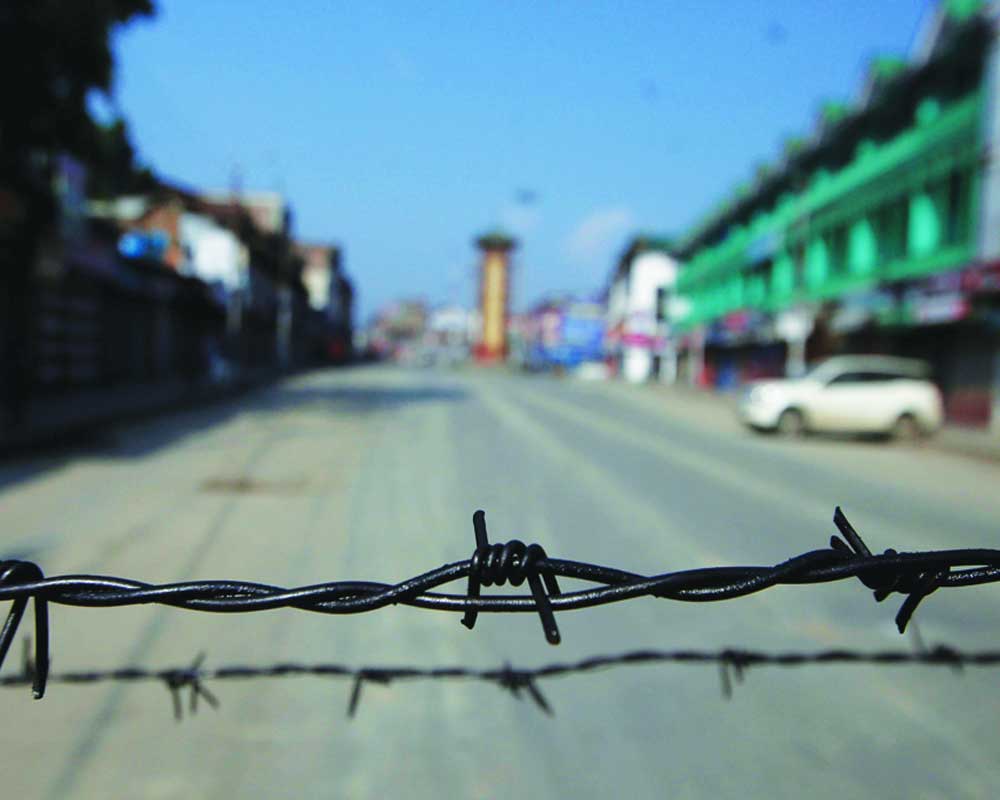
Global Pressure can help limit Pakistan
by Bhopinder Singh / 30 August 2019With our neighbour negating bilateralism, only global pressure can help limit its nefarious abilities so as to establish relative peace between India and Pakistan
US President Donald Trump overcame his mercantilist instinct to “mediate” in the India-Pakistan muddle and reason was restored in the debate, albeit temporarily, given his whimsicality and penchant for “deals.” The initial hoopla to “mediate” was unnecessarily created by an over-enthusiastic Trump, who rode roughshod over the deliberately-calibrated position articulated by previous presidential regimes in deference to “bilateralism” as the preferred means to address India-Pakistan differences.
Trump had waded the perennially short-of-facts-and-sensitivities into the sub-continental quagmire and incredulously stated that he “would love to be a mediator”, without realising the inadvertent twist that such a reckless statement was affording. Soon, the revert to “bilateralism” as the strategic framework was clarified by the bumbling-fumbling US President on the sidelines of the G-7 summit as he restored America’s position by stating, “I have very good relationship with both the gentlemen (Prime Ministers Narendra Modi and Imran Khan) and I’m here. I think they can do it (resolve the issue) themselves.”
Part businessman’s braggadocio and part his genuine sovereign concern to keep the Pakistani establishment in good humour — given the tactical urgency to solicit Islamabad’s help in extricating itself out of Afghanistan — Trump had almost acceded to the Pakistani aspiration of “internationalising” the India-Pakistan differences instead of insisting on “bilateralism” between the two disagreeing parties as was maintained by the US for long.
The immediate battleground for the Indo-Pakistan war of words is essentially on the disagreeing framework of a possible peaceful solution ie, should it be conducted in a “bilateral” manner as India thinks appropriate or should third-party “mediate” as is the wont on Pakistan? Legally speaking, there ought to be no ambiguity as the last-standing agreement between the two sovereigns, overriding all previous understandings, is the Simla Agreement (1972) that unequivocally states that both countries will “settle their differences by peaceful means through bilateral negotiations.”
The Simla pact also captures the essentiality of “non-interference” in each other’s internal affairs and conducting hostile propaganda — features that have unilaterally been violated by Pakistan with its proven support to insurgencies and terror groups in India, with Kargil emerging as the apogee of its misadventures and machinations. Today, despite much posturing to the contrary, having been found guilty on 32 counts of the total 40 parameters related to terror financing, Pakistan has been put on the “enhanced blacklist” by the global watchdog, the Financial Action Task Force (FATF). This backdrop of sovereign immorality, incorrigibility and duplicity is what underlies the Pakistani aversion to “bilateralism.”
There are various reasons as to why Pakistan abhors “bilateralism”. Conceptually and practically, the deliberations that are conducted in a “bilateral” framework are implicitly more focussed, nuanced with historical perspective and sensitivities and above all, lead to the fastest possible resolutions.
Ironically, the efficacy of “bilateralism” is what haunts the Pakistani narrative. Peace with India is the ultimate delegitimiser of the troika in Pakistani establishment ie, military, politicos and the clergy. The entire edifice and rationale of the Pakistani state is based on a regressive, competitive and flawed concept of “two-nation” theory that militates against the tenets of inclusivity, secularity and prosperity of the Indian state.
The creation of Bangladesh in 1971 destroyed the foundational raison d’etre of Pakistan. This was a deep wound that dangerously questioned its military and the ruling politicos of that time and, thus, germinated the seeds of the third vector of the Pakistani establishment ie, clergy, to inter-mingle, mutate and atrophy the societal-political-cultural moorings of the state. Post 1971, for Benazir Bhutto to Zia-ul-Haq as also subsequent regimes over there such as the Pakistan Peoples Party (PPP), Pakistan Muslim League (Nawaz) [PML-N] and now Pakistan Tehreek-e-Insaf (PTI) led by Imran Khan, the underlying, accompanying and unsettled fixation to “even” with India by keeping the fires burning is a predominant national instinct.
“Bilateralism” works on reconciliation, confidence-building steps, gradualism — all of this is an anathema to the very existence of the Pakistani troika/establishment. The third-party “mediation” allows the much-needed obfuscation, escalation and pandering to unrelated emotions that keep the issue “live”, thus necessitating the relevance of each of the elements of the Pakistani establishment. Third-party mediation is also sought via friendly and leverage-able countries and organisations who can provide the much-needed tilt in the battle of positions.
Resorting to pitching the Kashmir issue within the precincts of an organisation like the Organisation of Islamic Countries (OIC) by default allows Pakistan to posit the same from a narrow religious lens and emotion as opposed to the reality of historical facts, agreements and any other societal lens. On the other hand, the Constitutional construct of India auto-rejects religiosity as a basis of difference, preference or concern. Equality of all, irrespective of their race, religion or region, is the Constitutional guarantee.
“Internationalising” the Kashmir issue is the only unifying aspiration for a nation that is deeply polarised, combusting and enfeebled (financially, socially and economically). However, Pakistan has not been able to replicate the wounded sense of “Palestine” as the comparable actions of the Indian state and Israel in addressing their respective concerns have been starkly different. With all its systemic flaws, occasional mistakes and missteps, India has always sought, invested and aspired for “peace.” This legitimises the larger Indian narrative.
Globally, there is an increasing amount of plain-speak, impatience and intolerance with roughish duplicitousness that naturally lends itself to isolating nations that still insist on carrying on the tracks of the past.
The recent retraction of Trump to re-suggest “bilateralism”, the haunting silence of the Arab Sheikhdoms towards the rote Pakistani pitch on Kashmir and the unrelenting pressure on Islamabad by multilateral organisations like FATF, are all symptomatic of the times that be.
Unfortunately, there is a parallel need to sustain the skeletal-structure of governance in Pakistan as it is, as the alternative to this can be far worse than the one that exists today — Libya, Iraq, and Yemen are cases in point of dismantling imperfect structures.
Thus, it is only the collective global pressure to “manage” the Pakistani establishment and limit its nefarious abilities that can usher in relative peace as the existing issues are foundational, existential and regime-sustaining.
(The writer, a military veteran, is a former Lt Governor of Andaman & Nicobar Islands and Puducherry)
Writer: Bhopinder Singh
Courtesy: The Pioneer
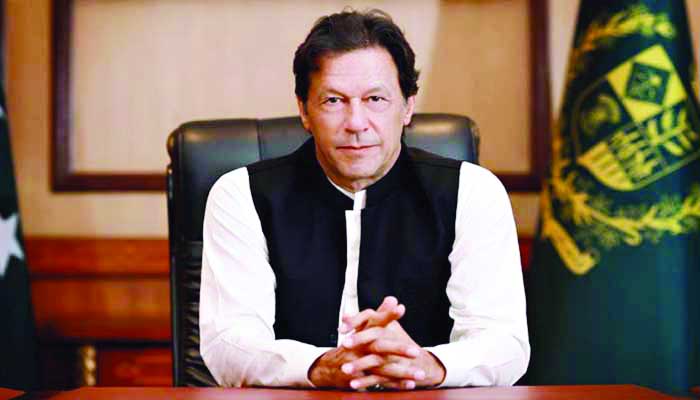
Pakistan lose the battle over J&K
by Opinion Express / 29 August 2019Imran Khan may be throwing more ill-thought hurdles our way but is now being hounded at home for mishandling J&K
It is a tough time to be the Pakistan Prime Minister, even if one propped up, coached, tutored and played by the fountainhead of the nation’s real power, the Army. Little wonder then that Imran Khan is at his most vulnerable as his armed invincibility has now been hopelessly blown to smithereens and isn’t scaring anybody in the region. Completely spooked by US President Donald Trump’s stand on Kashmir that it was a bilateral issue between two neighbours and isolated by even the Islamic world that considers the abrogation of Article 370 as India’s internal and administrative matter, Khan is desperately short of ideas and is making one embarrassing counter-move after another. First, he is threatening to close down his country’s airspace to Indian flights, riled by the fact that Prime Minister Narendra Modi used Pakistani airspace to fly to France, a nation that has steadfastly helped India’s line on sponsorship of terror factories. Second, he is urging certain pro-Khalistani Sikhs, who have been used for anti-India propaganda for years, to support him on Kashmir. In a viral video, a Pakistan-based Sikh leader claimed that no less than the highest temporal authority of the Sikhs, namely the Akal Takht, had asked the community to do so. It is another matter that the Takht has passed no such unrealistic resolution. Third, he is threatening to close land routes between India and Afghanistan and block trade, something that is more disadvantageous to his economy than ours. We have already downgraded trade relations and withdrawn Most Favoured Nation (MFN) status to Pakistan since the Pulwama attacks. Khan has proclaimed himself to be a global brand ambassador of Kashmiris and is reminding the world of repercussions in the event of an escalation of Indo-Pakistan hostilities, considering both are nuclear powers. Does he realise that such a strike is the last option any nation would contemplate and obliterate his people as well?
Truth is Khan, and by extension the Pakistani Army, are just moving around traditional counterweights in the strategic chessboard, hopelessly failing to blur the hard-edged reality. And that is since Pulwama, India has stopped being preventive about but rather reactive to Pakistani threats. The Modi brand of Indo-Pak diplomacy has shown that it is not scared to take on Pakistan’s “what could be” scenarios and could frustrate its “thousand bleeding cuts” strategy of exporting terror and separatism, staying well under the nuclear flashpoint. This new-found boldness means Pakistan misadventures on Indian territory are not to be tolerated but acted upon and nipped in the bud. Khan’s emotional appeal to the Islamic world that Kashmir was a matter of protecting Muslim identity has also backfired miserably with the snub from OIC and the UAE. Bahrain named Modi for its highest civilian honour, coopting the centrality of India in economic and strategic cooperation in the Gulf. Even the Taliban, known for its hardline interpretation of Islam, has not warmed up to the Kashmir question, although it has been safe-housed and nurtured by the Pakistan Army. Then its all-weather friend China has been selective in its reaction to India’s mainstreaming of Kashmir, objecting only to the bifurcation of Ladakh and its impact on Aksai Chin that it had taken over after the 1962 war. Besides, given its own problematic record of human rights in minority provinces and with Uyghurs, it doesn’t want to attach itself to causes linked to religiosity or upset its bilateral paradigm with India at the moment, which is far bigger. The Asia-Pacific grouping of the Financial Action Task Force (FATF), the watchdog of nations promoting terror and empowered to restrain international funding, has already put Pakistan on an enhanced blacklist, so most nations would not want to touch it now because of that taint. Now, our western neighbour has to focus on avoiding the blacklist in October, when the final review comes up. If any good has happened to Pakistan, it is that the foreign policy of years is now being questioned by its opposition parties. Bilawal Bhutto has now advised Khan that he better focus on saving Muzaffarabad and Pakistan-Occupied Kashmir, lest that strategic pie also slips out of his hands. Of course, democracy is a long shot in Pakistan but Khan and the Pakistan Army have now got to reconcile that their age-old templates aren’t working or won’t be anymore in a world where politics will be dictated by the economy.
Writer & Courtesy: The Pioneer
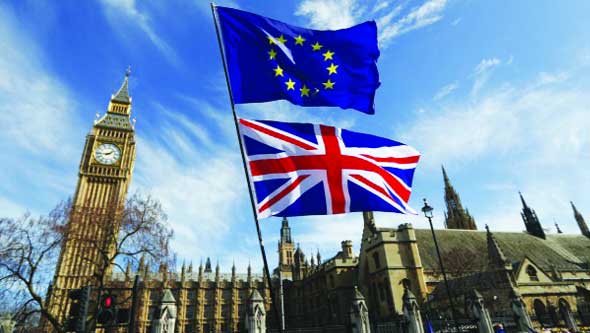
Brexit brink will impact Global Economy
by Opinion Express / 29 August 2019The UK is driving towards the new deadline haphazardly. Its actions will impact the global economy
The United Kingdom (UK) is now in the midst of a full-blown Constitutional crisis with the new Boris Johnson-led Government deciding to prorogue Parliament. This might have been scandalous in other times, especially as the Government has a majority of just one, and could have led to “horse-trading” as several Constitutional experts in the UK have warned. But with Britain also rushing headlong towards the October 31 deadline to leave the European Union (EU), there’s no room for such machination. One can only imagine the volume of screaming and shouting had the Government in India tried to prevent Parliament from discussing something of paramount national interest. Comments by several British parliamentarians from the Opposition as well as the ruling Conservative Party, including the Speaker of the House of Commons, have been of surprise and outrage. For students of British history, it appears that another schism has emerged between Parliament and the Executive, which goes back before the English Civil War.
And while there is no risk of a violent second civil war, the country is hugely divided, politically, socially and economically. Yet, it is also clear that the vote on leaving the EU must be honoured — for better or worse. The problem is that several parliamentarians are rightly scared about the “for worse” option, particularly about a “no deal” transaction with the EU. This would, some fear, lead to a land border between British Northern Ireland and the Republic of Ireland as well as Customs and immigration chaos. There is no resolution as yet about the status of European citizens living and working in the UK as well as what will happen to British citizens in Europe. And with just about 60 days to work out a solution, Johnson must have felt that he could have done without the distractions of a deeply divided Parliament. What he might have created though is a monster and united the several warring factions inside the Houses of Westminster into a cohesive unit. Negotiating deals is not as easy as composing tweets or even campaigning, both things that Johnson is very good at. Dealing with hard-nosed bureaucrats of the EU and trying to extract concessions is even tougher. It appears Johnson has borrowed some tactics from Pakistan, which regularly negotiates with a gun to its head, as a commentator once aptly said. The UK, which sowed the seeds of conflict in the Levant, South Asia and Africa, finds itself in a bind and the rest of the world, particularly those that have once been part of the empire, cannot help but feel what the Germans call schadenfreude.
Writer & Courtesy: The Pioneer

Pak needs to Focus on Internal Problems
by Opinion Express / 20 August 2019With the economy sinking and a failed bid at the UNSC, Islamabad is in no position to declare war or embrace peace. It will do well to focus on its internal problems
A fortnight after the Modi Government defanged Article 370, scrapped its illegal appendage, Article 35A and split the northern State into the Union Territories of Ladakh and Jammu & Kashmir, Islamabad is groping for a coherent response. In May 1998, when the then Prime Minister Atal Bihari Vajpayee stunned the world by testing five nuclear devices (Pokhran-II) and made India a full-fledged nuclear state, Islamabad swiftly showcased its own nuclear capability.
This time, most world capitals overcame their surprise and accepted the changes in Jammu & Kashmir as India’s internal matter; Pakistan was supported by the colonial-minded Western media and China, which arranged “closed consultations” (unrecorded) in the UN Security Council. India’s action was breathtaking in its simplicity and audacity: Operating within the Line of Control (LoC), it took long-suffering Ladakh to its bosom as a directly-administered Union Territory while Jammu & Kashmir provinces were declared a separate Union Territory with an elected legislature. The Union Home Ministry will have direct supervision of both.
Political parties and dynasties that misused Article 370 to nurture separatist sentiments in the Valley while neglecting Jammu and Ladakh regions have been downsized and separatists put on notice. A zero-tolerance policy towards terrorism was already in place. Caught between a perilous economic situation with the Financial Action Task Force (FATF) breathing down its neck on one side, and its jihadi groups on the other, Islamabad is in no position to declare war or to embrace peace.
Prime Minister Modi’s artful jugglery has subtly avenged India’s exclusion from the Afghanistan talks, making it difficult for Washington and Islamabad to put the Taliban in power in Kabul, with the acquiescence of Moscow and Beijing. This gives a breather to the Kabul regime that was also excluded from four-party negotiations. Washington is, thus, likely to remain trapped in the graveyard of empires because successive Presidents from George Bush Jr, Barack Obama and now Donald Trump would not consider gifting the impressive American arsenal to the Afghan Army, training it to use the same and making a dignified retreat.
Washington is unconcerned about the fate of President Ashraf Ghani, former President Hamid Karzai, their colleagues and supporters, should Taliban return to Kabul. But for India, this is a matter of deep concern. New Delhi’s checkmate has put Islamabad in a bind: It cannot clinch the Taliban deal for Washington: It cannot compensate its jihadi mercenaries with escalated action in Jammu, Kashmir or Ladakh. Its position is unenviable: To exit a cul-de-sac one must go back the way one entered but this route is not open to Pakistan. In the Mahabharata, Abhimanyu did not know how to escape the chakravyu; Imran does but it is just not possible.
Scholars Asma Khalid and Mobeen Jafar Mir of the think tank, Islamabad Policy Institute, blame Pakistan for failing to anticipate and challenge India’s hollowing of Article 370 despite clear signals. In a report, Abrogation of Article 370: Implications & Policy Choices for Pakistan, they urge Islamabad to launch a diplomatic blitzkrieg against India by emphasising the “disputed status of Kashmir”, highlighting India’s alleged human rights excesses and the threats to regional stability.
In a clear sign of Islamabad’s political bankruptcy and lack of choices, Khalid and Mir urged their Government to work for convening an urgent meeting of the UN Security Council to discuss the situation; at the “closed meeting” the four other permanent members said changing Jammu & Kashmir’s Constitutional status is India’s internal matter. Islamabad is unlikely to accept the suggestion to move the International Court of Justice (ICJ) after its resounding defeat in the matter of consular access to Indian citizen Kulbhushan Jadhav.
Khalid and Mir bemoan the loss of Jammu & Kashmir’s separate Constitution, flag and autonomy in all matters barring foreign affairs, defence and communications. The Bharatiya Janata Party (BJP), they say, always proclaimed its intentions in its election manifestoes and in 2019, reiterated its determination to annul the Kashmir-specific Articles 370 and 35A.
Article 35A, introduced via Presidential order under Article 370 in 1954, empowered the State Legislature to define permanent residents and barred Indians from outside the state from permanently settling, buying land, holding local Government jobs or winning education scholarships there. It also barred female residents (and their children) from property rights in the event of marriage outside Kashmir. The spirit behind this legislation was to protect the identity and culture of Kashmiris and preserve Kashmir’s demographic character.
Interestingly, the scholars allege that the BJP’s agenda is to secure demographic change in the Valley through resettlement of refugees from West Pakistan, Azad Kashmir and Chhamb. It is true that the BJP has been concerned about justice for the refugees, who entered Jammu & Kashmir during Partition and after, and the Scheduled Castes invited by Sheikh Abdullah to clean the city on promise of citizenship. However, Abdullah, supported by former Prime Minister Jawaharlal Nehru, later denied them State subject status and its accompanying benefits. The issue is now redundant with the extension of the Constitution of India in its entirety to the new Union Territory.
Azad Kashmir is a sliver of Jammu Province, where pro-Pakistan radicals created trouble for Maharaja Hari Singh in 1946. Pakistan dubbed it as Azad Kashmir when it seized the area in 1947-48. Chhamb in Hamirpur district of Himachal Pradesh was an area of conflict in the 1965 and 1971 wars. Khalid and Mir charge that India will try to enhance Hindu representation in the Valley to reduce the influence of Kashmiri (read Muslim) political parties in the event of a plebiscite under UN auspices, an idea scotched by Kofi Annan in 2001.
Moreover, the Security Council Resolution of 1948 is explicit that Pakistan must withdraw all military and civilian personnel from the occupied territory who were not there before August 14, 1947; India is to retain its military in Srinagar to administer the plebiscite. Hence, the Pakistani scholars’ attempt to project India as an occupying power in the kingdom of Maharaja Hari Singh is a non-starter.
Pakistani fears that India’s action of August 5, 2019, may impact the Indus Water Treaty are premature as India can achieve much by merely utilising its legitimate share of the Indus waters. As for the occupied territories, Home Minister Amit Shah has reiterated India’s claim to the undivided kingdom, including Azad Kashmir, Gilgit Baltistan, and Aksai Chin. Pakistan would do well to focus on its internal problems.
(The writer is Senior Fellow, Nehru Memorial Museum and Library; the views expressed are personal)
Writer & Courtesy: The Pioneer
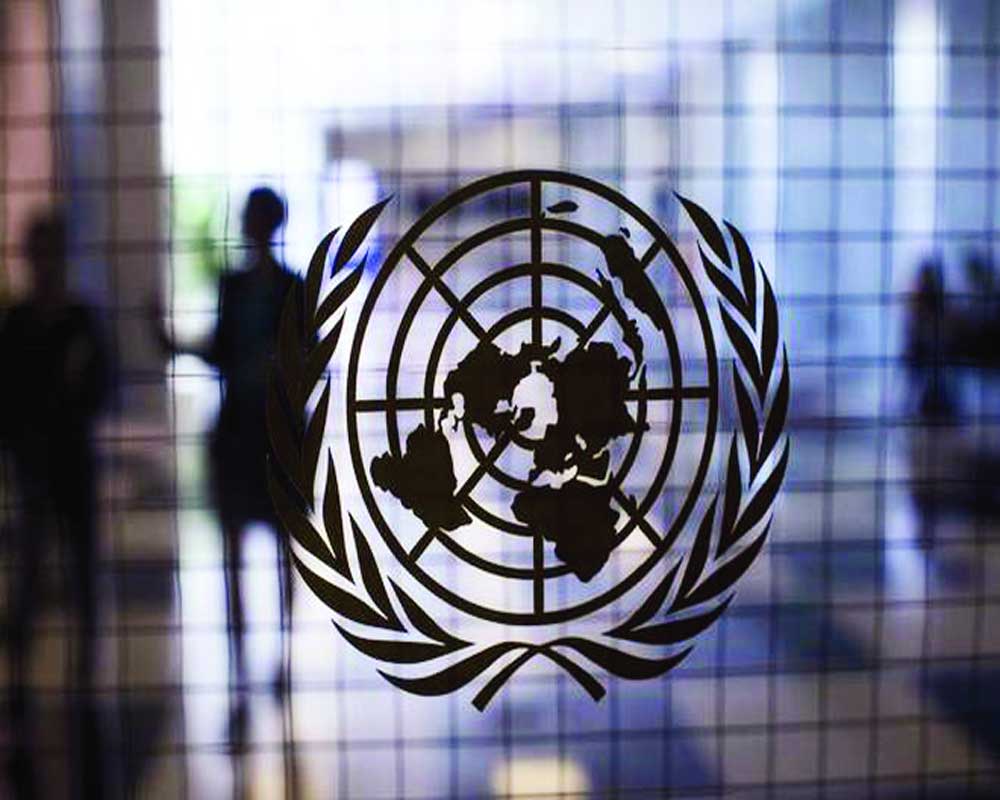
India drowns both Pak and China at UNSC
by Opinion Express / 19 August 2019Our diplomatic offensive at UNSC was weather-proofed enough to drown out both Pakistan and China
Given the suddenness of the revocation of Article 370 in Jammu and Kashmir, its bifurcation and changed status to a Union Territory, Modi 2.0, in contrast, had amply prepared its diplomatic offensive, anticipating queries, anxieties and sensitivities of the Big Five members of the United Nations, other world leaders and predictable hitbacks from neighbours Pakistan and China. So although China, being an all-weather friend of Pakistan, backed its push for an informal consultation on Kashmir in the UN Security Council, in the end there was status quo on it being a bilateral matter and acceptance that abrogation of Article 370 was facilitated by a legal clause and, therefore, qualified as an internal matter of India compliant with its statutes. Even US President Donald Trump, who had stirred up a hornet’s nest by offering to mediate, has now advised Pakistan Prime Minister Imran Khan to settle the issue within the bilateral framework. Having failed to internationalise Kashmir enough, a desperate Pakistan did not relent, calling Kashmir a “nuclear flashpoint” even after the UNSC rebuff. While it is but expected to keep the storm and fury going, if only to justify its long-term politics, fact is that the US has made its value to it contingent upon its role in managing the Taliban in Afghanistan post its intended pullout from the region. Besides, the Trump administration has also cut back some funding to it despite Khan’s latest visit to Washington. The huff and puff is, therefore, posturing for a long-held constituency that it has nurtured in the Valley, which has been tamed by India’s pitch of Pakistan-exported terror camouflaging itself as self-determination, and now the complete revocation of special status which swamps all separatist sentiments. Truth be told, even India had clouded the “no first use” theorem a day before, saying it could be reviewed depending on the nature of external provocation. Our western neighbour, too, took off on this statement. India has anyway been predicating the Kashmir question on a tremendous threat perception from Pakistan just as the latter is seeking to externalise our internal matter. To that extent, this bluster works for both. Of course, the lockdown of the information highway has not helped either and strengthened stereotypes rather than reconciliation. If the government indeed wants to push its development narrative, then a tight-fisted channelisation of information is clearly counter-productive. There has to be a mature way of dealing with protests on the subversion of what has held together Kashmir’s matrix with us since Independence. And a jackboots approach to suppressing debate in a digital age may actually quite backfire and damage the tide of opinion in our favour at the moment.
China may not be too happy about the UT status to Ladakh that would give India strategic heft in a region that lies next to Aksai Chin. But so long as the Line of Actual Control is as it is, it won’t have any ground to push its belligerence on Kashmir. China, which got the Shaksgam Valley in 1963 from Pakistan, has so far argued that its claim there is contingent on the final resolution of the Jammu and Kashmir dispute. Now it is part of the UT of Ladakh, nullifying that legitimacy. But China will have to unwillingly accept this considering that it is looking at greater economic cooperation with India and wouldn’t want to jeopardise that template of neutrality with a resurrection of border issues. Besides, if it accuses India of making territorial changes, then it also is not exactly immune to helping Pakistan make those changes courtesy the China Pakistan Economic Corridor (CPEC) in Pakistan-occupied Kashmir. Its own oppressive role in the Hong Kong protests and Tibet has denied it a moral standpoint at a global forum. And it is this record that didn’t wash with other members. Over the years, China has been pushing its agenda of winning hearts of Ladakhis through its own kind of cultural diplomacy, influencing several Buddhist sects and groups and playing them against each other. It has been funding monasteries in the area to link them to the larger Chinese Buddhism, a strategy which has allowed it to make inroads in the Buddhist countries of Southeast Asia too. Given Dalai Lama’s ill health, China is already preparing to have a say in the dominant Tibetan Buddhism in the region. The reorganisation now allows New Delhi direct decision-making and first-hand engagement with the Buddhists of Ladakh and could well strengthen Himalayan Buddhism as a counterpoint. China may be an irritant but depending on the relevance of the Asian Infrastructure Investment Bank (AIIB), that allows it a backhand entry to India without pushing the Belt and Road Initiative, and its stumbling trade block with the US, it is but posturing at the moment.
Writer & Courtesy: The Pioneer

Hong Kong on the horns of dilemma
by Makhan Saikia / 18 August 2019The chances of Hong Kong turning into ‘Tiananmen Square 2’ are not remote, a few believe. However, for many in international politics, if the Chinese Government comes into direct confrontation with the protesters, it will permanently change the liberal atmosphere and political freedom available to the islanders
Hong Kong is no more an “Economic City” for mainland China. It’s turned itself into a massive political hotbed. Protest is not ebbing away. The city has entered into the third month of demonstrations. Gradually, the protesters are making the city a theatre of all political activities. Starting from the resignation of city chief Carrie Lam, they have started demanding full autonomy from the central Government in Beijing, an independent commission to investigate police brutality, and wider political reforms to allow for direct elections to elect the representatives of the Legislative Council. The way the demonstrations are carried out and the black-clad vanguards are handling the current situation, it seems it would not bring an end to the crisis sooner or later. Are they inviting another “Tiananmen Square” type crackdown that struck China way back in June 1989. Will the communist bosses in Beijing allow them the kind of autonomy the Hong Kongers are demanding? How long the crisis in the island will continue? For many in international politics, these are baffling questions that might take away the existing liberal atmosphere and political freedom available to the islanders forever if the Chinese Government directly comes in confrontation with the protesters.
This summer, Hong Kong has witnessed the worst political turmoil ever since the territory’s handover to China in July 1997. The current bout of protests stated with a demand for withdrawing the controversial extradition law proposed by the city Government. And eventually, that Bill was dropped by the Legislative Council for an indefinite period, as Lam clarified.
There is another question: is Hong Kong still crucial for China? Experts say that if China behaves more in Mao-era style, it might have to depend on the island more in commercial terms than political perspective. As China has not brought financial and legal reforms demanded by the global business enterprises, it would have been possible for the Communist Party leadership to make Hong Kong gradually irrelevant for long-term business transactions. But what has happened is that China, particularly under Xi Jinping, has grown beyond the traditional Communist closet. China has reached out to almost all destinations of the globe. China has grown fast and entered into the globalised world at ease, but it has not opened up as it was expected in the West.
This has made the economy of Hong Kong critically important for mainland China. The most important aspect of its economy is that it has been successful in registering a status within a body of international laws and rules around the world. This has made Hong Kong possible to provide it seamless access to the privileged western markets. This status has many aspects: a higher credit rating, low risk weights for banks, and counter party exposures, the ability to clear dollars at ease, independent membership of the World Trade Organisation (WTO), equivalent status of its stock exchange in the US, Europe and Japan, recognised as a developed stock market by global index firms and cooperation agreements with a number of top security regulators. Besides, most of the foreign direct investment (FDI) mainly flows through Hong Kong. The stock domiciled in the island territory has nearly doubled in the last decade up to $2 trillion. Despite the islanders developing suspicious attitude towards mainland China, the territory’s share of total FDI flowing into the latter, has remained stable at 60 per cent. This is very striking. It must be admitted that China has become an international growth machine. The Government has turned the country and its massive human resources into a hub of foreign investment opportunities. Needless to say that this has resulted into a situation where the movement of the FDI flowing into the country has increased at an alarming rate. But the reality is that most of the global investors always prefer to have a legal stamp from Hong Kong. This is because of China’s direct refusal to carry out major reforms as demanded by a global market economy.
Besides being an Asian financial hub, Hong Kong hosts major regional headquarters of the giant multi-national corporations. And ironically, even after the withdrawal of British suzerainty over the island since July 1997, such offices have increased by two-thirds to 1,500. But the American techno giants such as the Amazon, Google and Facebook have settled their offices in Singapore. With the protests raging to a record high level, there has been constant fears that many of such regional offices might move to Singapore in the near future.
A direct military intervention by China is quite unlikely for now. It seems, the Xi administration is solely banking on the leadership of Lam and Hong Kong Police for sending the protesters back home. By all possibilities, Lam administration is hoping that the protesters will lose steam soon. Even the security experts feel that very fast popular support would be dwindling for them. Initially, parents were marching with their children. But then now mostly young ones are on the road and their parents are highly concerned about the growing violence that is fast engulfing the entire movement. Many of the parents are not giving pocket money to their wards so that they have to head home soon. Another expectation is that with the beginning of the new academic session from early September, the college and university students have to go back to their classrooms.
Currently, China and America are locked in a trade war. Thus Trump is cheering the protesters in Hong Kong and is also saying that Chinese troops are moving towards the border with the island. In fact, China knows very well that Trump has a formidable weapon to use in the form of Hong Kong Policy Act 1992 that recognises Hong Kong as a separate legal and economic entity from China. It also makes Hong Kong an open economy by all standards. This might stop China from intervening in the territory directly in the form of a military attack. This will eventually breach the above act.
But the bottom line is that continued protest will block all the avenues for a peaceful advocacy of resolving the conundrum for now and in future as well. Hope the protesters listen to the writings on the wall. Else Hong Kong will soon be turning into a boiling point of Asia. This will provide more ammunition to the Chinese army to intervene just to maintain the law and order situation in its own territory.
(The writer is an expert on international affairs)
Writer: Makhan Saikia
Courtesy: The Pioneer

Hong Kong troubles
by Opinion Express / 15 August 2019One reason why China has not been able to chide India on Article 370 is because it is facing a crisis in Hong Kong
Diplomats will tell you that China bristles at any perceived ‘interference’ in its ‘internal affairs’ and for years the fear of hitback has meant that it has been able to get away with gross human rights violations without even a slap on the wrist. Whether it is brutality against the Tibetan population with crackdowns in Lhasa, the long-standing assault on members of the Falun Gong sect or even the current repression against the Uighur community in northern Xinjiang, none has elicited a unified condemnation. Ever since 1989, when China was roundly lambasted for the military crackdown in Tiananmen Square, where hundreds are estimated to have died, it has not taken kindly to being warned about its actions. Meanwhile in the 30 years following the military action in Beijing, it has become such a global economic powerhouse that it punishes those nations that criticise it with a breath of dragon fire to their existing trade deals.
The problem with Hong Kong though is a bit more complicated. The territory, which China got from the UK in 1997, is still nominally autonomous. So when it made an attempt to subjugate it by seeking to extradite criminals from Hong Kong to the mainland, which has its own laws, this predictably outraged several locals, who have grown to love their special status and the far more liberal justice system. Coming on the back of intense protests last year, popularly called the ‘Umbrella Movement’, to other proposals made by Carrie Lam, Hong Kong’s Chief Executive, a governor appointed by Beijing, these protests were destined to be intense. But nobody could imagine just how widespread they would be or how they would be a culmination of long-held oppression. Thanks to the fact that Hong Kong still has a lot of expatriate workers and a free Press, China has not been able to crack down on the protesters without the world knowing. The impact has been devastating with Hong Kong Airport, one of the region’s biggest hubs, shut down after protesters effectively barricaded it and the central business district. There have even been reports of violence, mainly by the police and some unknown ‘thugs’ whom many suspect are Chinese agents. China has not been happy to see the protests beamed on live television across the world and while itching to press the trigger finger realises it cannot. It has reacted angrily to suggestions by countries, particularly Hong Kong’s former rulers, the UK, to calm the situation. But for India, this also allows China to be more pragmatic when it comes to our position on Kashmir.
Writer & Courtesy: The Pioneer
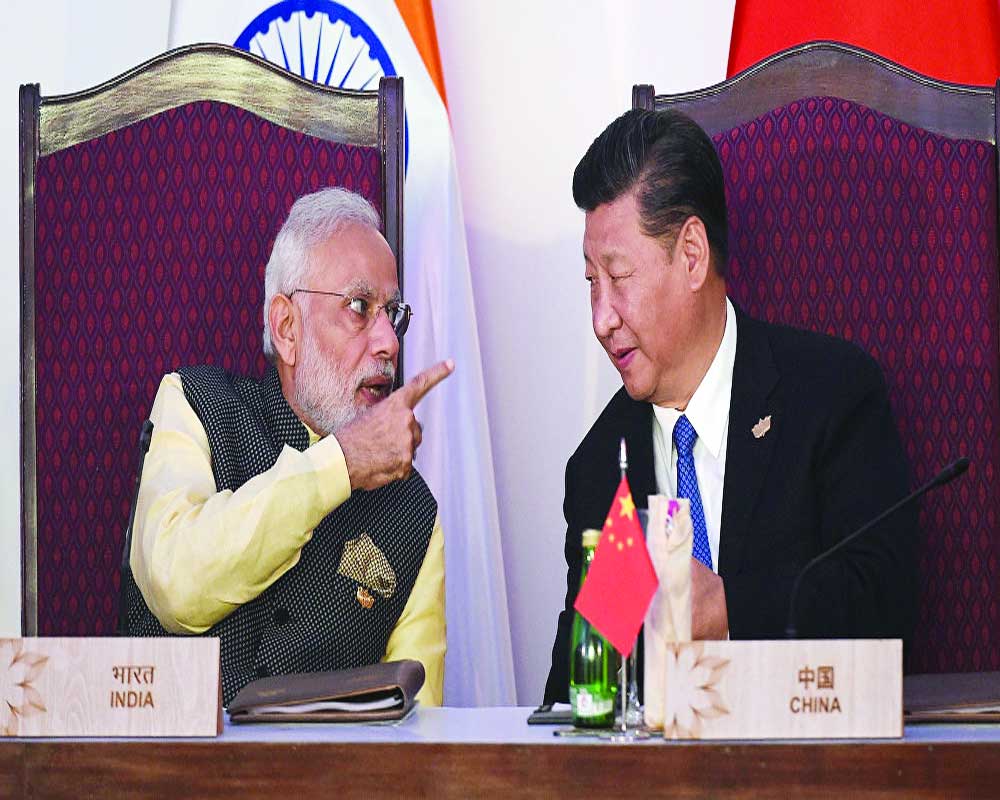
India-China’s Cooperation for New Endeavors
by Ekaterina Blinova / 14 August 2019India and China’s contradiction at the RCEP summit does not stop their cooperation for another endeavor.
The latest round of the 16-member Regional Comprehensive Economic Partnership (RCEP) negotiations has yet again exposed frictions between Beijing and New Delhi, this time over the India-China trade deficit and market access.
New Delhi’s trade deficit with the RCEP grouping and China amounted to $105 billion and $53.6 billion in 2018, respectively. The tariff elimination under the RCEP may deal an additional blow to India’s economy, bolstering its trade deficit with the nations. In addition, New Delhi argues that it needs further access to the Chinese market for its key sectors, including IT products and services, pharma and agriculture.
Indian Commerce Minister Piyush Goyal backed out of the group’s ministerial meeting in Beijing, which was largely seen as a symbolic gesture, according to The Hindu. As a result, India was represented by Commerce Secretary Anup Wadhawan, who outlined the country’s demands at the meeting on August 2-3. Despite speculations of India’s possible withdrawal from the bloc, the country signalled on August 6 that it would continue the talks, according to the Hindu Business Line.
Amid the simmering US-China trade war, Beijing is pushing ahead with the RCEP, a proposed free trade agreement between the 10 member states of the Association of Southeast Asian Nations (ASEAN) as well as China, Japan, India, South Korea, Australia and New Zealand that was formally announced in 2012.
Why India snubs China’s Belt and Road initiative?
The RCEP is not the only China-led economic initiative prompting India’s concerns. The Beijing-led Belt and Road Initiative (BRI), a multi-billion infrastructure investment endeavour unveiled by Chinese President Xi Jinping in 2013, also raises questions in New Delhi.
While neither clearly rejecting nor endorsing the initiative per se, New Delhi boycotted the first Belt and Road Forum (BRF) for International Cooperation in 2017 over the China-Pakistan Economic Corridor (CPEC) project. The proposed corridor passes through the Pakistani-administered Kashmir areas of Gilgit and Baltistan, claimed by New Delhi. The implementation of the Chinese-Pakistani initiative is tantamount to the recognition of Islamabad’s sovereignty over Gilgit-Baltistan in the eyes of India.
“The BRI, which seeks to alter extant political geographies and economic models, is China’s most potent tool in this regard. India is not part of this due to the violation of its sovereignty in CPEC passing from Pakistani-occupied Kashmir”, explains Amrita Dhillon, the founding editor of a New Delhi-based magazine, The Kootneeti.
On April 26-27, 2019, India did not attend the second BRF that took place in Beijing amid the simmering India-Pakistani conflict following the Indian Air Force’s Balakot operation in February 2019. For its part, India triggers China’s unease with its growing involvement in joint drills with the navies of Japan, Vietnam, Singapore and the Philippines as well as the US-led freedom of navigation operations (FONOP) in the disputed South China Sea, about 90 per cent of which is claimed by the People’s Republic.
Nevertheless, Beijing is seeking India’s participation in its endeavours: Being the world’s seventh-largest economy by nominal gross domestic product (GDP) and the third-largest by purchasing power parity (PPP), India could give a significant boost to China-led projects.
Thus, in July, Yang Yanyi, a member of the Foreign Affairs Committee of the Chinese People’s Political Consultative Conference, called upon India to join the BRI, arguing that “bilateral problems with Pakistan should not be turned into an India-China issue.”
Simmering contradictions do not mean that India and China are heading towards a stalemate, according to Adam Garrie, director of the Eurasia Future think-tank and Tom McGregor, a Beijing-based political analyst and senior editor for China’s national broadcaster CCTV.
AIIB is a way to soothe India-China contradictions:
Observers believe that the China-based Asian Infrastructure Investment Bank’s (AIIB) initiatives may facilitate soothing of India-China relations.
Being founded in 2014, the bank is largely seen as a part of the Belt and Road project, although the two endeavours are not formally associated.
While the Modi Government has made it clear that it is not inclined to participate in the China-led BRI, India remains the bank’s founder. New Delhi enjoys the second-largest voting share in the financial institution after China. Additionally, India is one of the largest recipients of AIIB funds.
In February 2019, India and the AIIB inked a $455 million loan aimed at improving rural connectivity in Andhra Pradesh. According to the Indian Ministry of Finance, the project will “connect some 3,300 habitations with a population of more than 250, and benefit around two million people.”
“India’s rural regions remain largely impoverished and for the entire nation to succeed that requires more balanced regional development alongside urbanisation, industrialisation and modernisation campaigns”, McGregor presumes, adding that the AIIB “can play a crucial role to help eradicate poverty in the country.”
Having mentioned anti-China sentiment among Indian nationalist parties, the Beijing-based journalist opines that the improvement of India-China ties could become a win-win solution for both nations.
“Should [Indian Prime Minister Narendra] Modi choose economic expansionism, he must improve trade and investment ties with China and the US”, McGregor believes.
Adam Garrie echoes McGregor: “Although India has been opposed to membership in the Belt and Road initiative, India can and likely will benefit from closer cooperation with the AIIB”, the UK-based geopolitical analyst notes.
“It makes logical sense for India to work with the AIIB just as it does for countries like Turkey, Russia, Indonesia and Thailand”, Garrie says. “As such, the old expression ‘money talks’ is apropos when it comes to India’s position via-a-vis the AIIB. As things stand, India already participates in some BRI related projects but for political reasons will not likely ever sign up to BRI on the whole. That being said, AIIB is one important area where India and China can minimise tensions through win-win financial arrangement.”
According to Amrita Dhillon, “India is not opposed to China.” “In fact, it has always wished to promote mutual trade and shape relations between the two and join hands in focussing on innovative solutions for the Asian problems”, she points out.
However, the Indian journalist notes that China, for its part, needs to take India’s geostrategic interests into account in order to facilitate the development of the region.
“China and India share a long history of cooperation and AIIB is one of the important roads which connects Beijing and New Delhi”, Dhillon emphasises. “As of now, AIIB has approved six projects worth $1.2 billion in loans to India for infrastructure-related projects and an additional $1.9 billion is under review. Similarly, India’s cooperation in the Shanghai Cooperation Organisation (SCO) with China is growing, rapidly making it a platform to tap the potential of the relations India carries with the Central Asian Countries.”
(Courtesy: SputnikInternational)
Writer: Ekaterina Blinova
Courtesy: The Pioneer
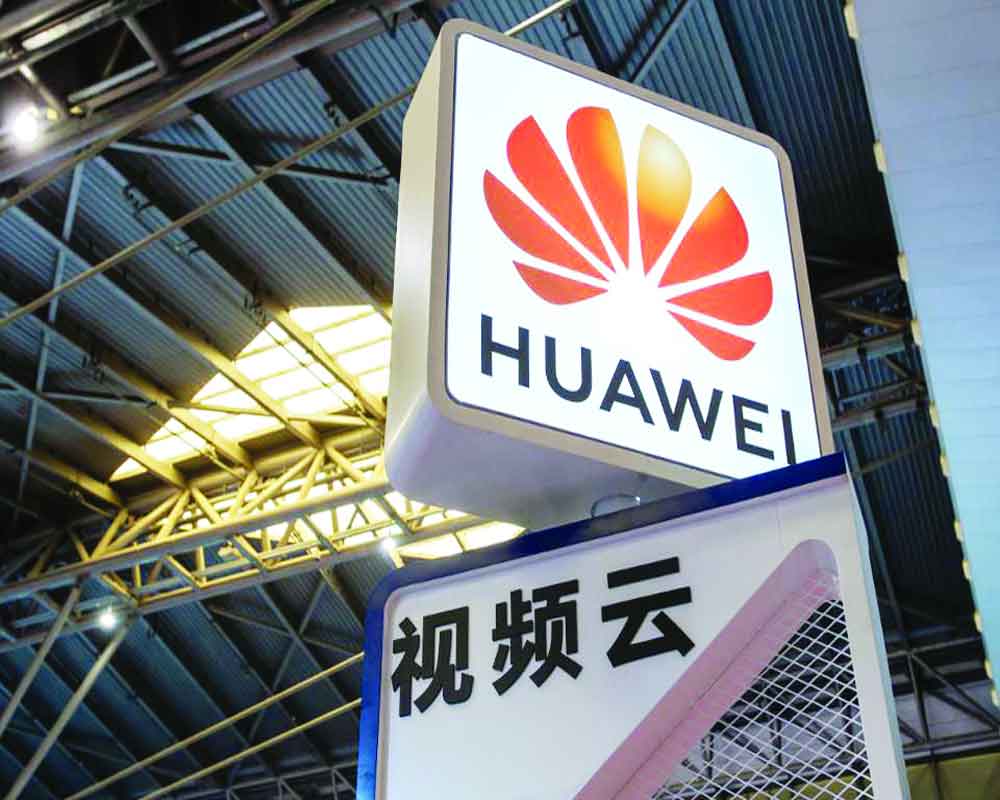
New Chinese threat
by Opinion Express / 10 August 2019India on a hot tin roof as both US and China lay terms for Huawei’s entry into 5G trials
It’s not the best time for diplomacy with China following the reorganisation of Jammu and Kashmir and the declaration of Ladakh as a Union Territory. It is the latter that has riled our eastern neighbour as it immediately changes the dynamic on Aksai Chin. China has so far argued that its claim there is contingent on the final resolution of Kashmir. Now that it is part of the UT of Ladakh and cannot figure as an adjunct of the old State, China is refusing to accept it and upping the ante. However, if observers are to be believed, it is show-boating its anger by dilly dallying on visas for Mansarovar yatris while working on Premier Xi Jinping’s informal visit to India. It is also staying away from making sweeping statements on the abrogation of Article 370, asking both India and Pakistan to exercise restraint. Trade is its bigger concern. So its threat to block Indian firms operating on its soil, if we stop Huawei Technologies from doing business here and participating in 5G trials under US pressure, is serious.
India is in a bit of a cleft stick here as Huawei is the pivot of a geo-political slugfest between China and the US. The Donald Trump administration put the company on a blacklist in May, citing national security concerns. It has asked its allies not to use Huawei equipment, which it says China could exploit for spying. Given Trump’s transactional nature of dealing and knowing that India needs his support in the background of tectonic administrative changes in Modi 2.0, we are in quite a pickle about accommodating Chinese interests without upsetting the US and risking trade-protectionist hitbacks there too. And now that Chinese officials have threatened “reverse sanctions,” India must frame a reasonable response. Besides, Huawei has already operated in India before, so denying it fair trial now would be inimical. A potential conflict over Huawei can end up inflaming emotions and jeopardising the long-standing territorial status quo. At the same time, India desperately needs to address a $53 billion trade deficit during Xi’s visit and can ill-afford trust issues at this point. A high-level group of officials, which has been looking into whether to open the 5G trials, has so far found no evidence to suggest Huawei has used “back-door” programmes or malware to collect data in its current operations here. On the face of it, one can’t reject Huawei simply because it is Chinese. After all, it has 20 per cent patents, 50 per cent market share and is cost-effective. But what the government can do indeed is to get wireless carriers who will be rolling out 5G services to use India-made software. And then drive equipment supplied by gear makers. We cannot overlook security concerns either but considering Huawei entry is conditional for Chinese looking the other way in matters diplomatic, we have to step our way around it.
Writer & Courtesy: The Pioneer
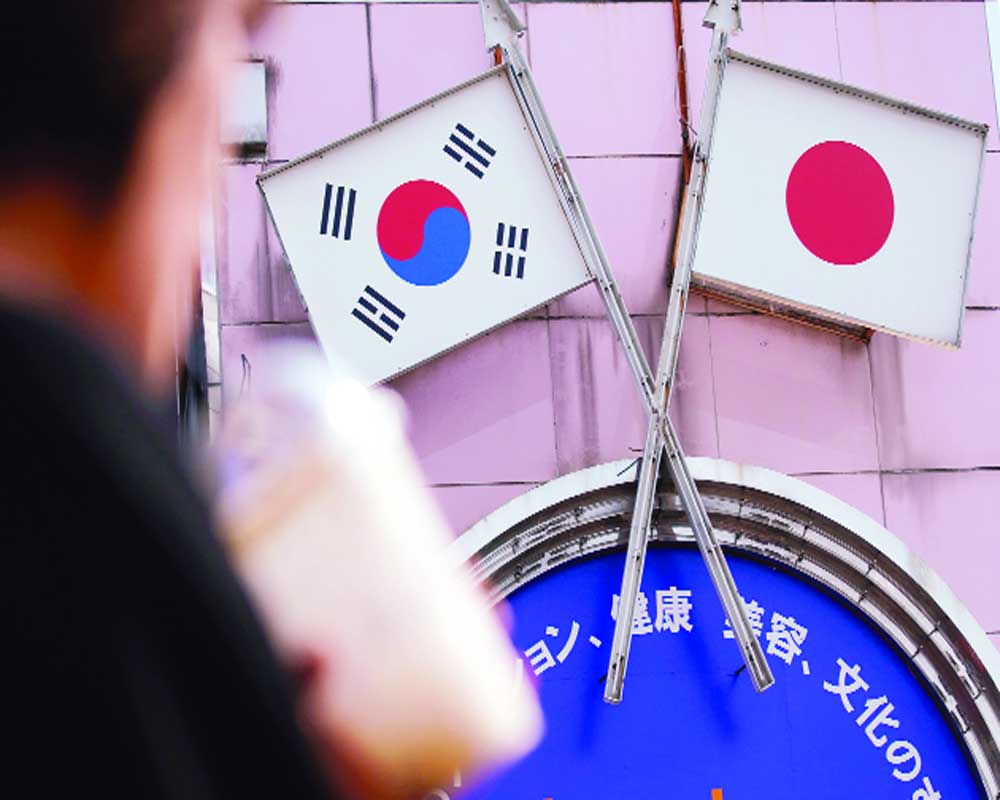
South Korea-Japan spat: Affecting World Economy
by KV Kesavan / 08 August 2019With the South Korea-Japan spat escalating, it is unlikely that the US can play a mediatory role. The fallout of such dispute will affect the world economy
At a time when both Japan and South Korea are expected to cooperate in addressing multiple economic and strategic challenges in the East Asian region, they are embroiled in a serious trade dispute, which threatens to escalate and even spill into other areas like security and regional supply chain.
That the bilateral relations between the two have long been plagued by historical and territorial issues is well-known. But this time around, it is not the usual historical wrangle but a more serious and substantive trade dispute that poses a challenge to their ties. The current issue, which has created a serious diplomatic row between the two, relates to the action taken by Japan to put restrictions on its supply of semiconductor manufacturing materials to South Korea.
On July 4, Japan started implementing a new policy of restricting its supply of three critical materials involved in the manufacture of semiconductors — photoresist, etching gas and fluorinated polyimides — to South Korea. Restrictions on more such sensitive materials are expected to follow once the policy gets into full swing. Under this policy, Japanese companies supplying these materials to South Korea will have to seek the Government’s approval for each contract — a cumbersome process that would take at least 90 days for clearance.
For a long time, South Korea has enjoyed a preferential treatment in the supply of these sensitive materials, which contributed to Korean companies like the Samsung Electronics and SK Hynix among others, to emerge as giants in the semiconductor field. Today, they make nearly two-thirds of the world’s memory chips, which are used in a wide range of products from smart phones to cars. If these companies go out of their stockpiles, it will cause serious disruption to the global semiconductor production.
On August 2, the Japanese Government followed up on its earlier action by removing South Korea from the “white list” of 27 countries, which enjoyed preferential treatment in the supply of sensitive materials from Japan. South Korea is the only Asian country which joined the list in 2004. The latest action of the Japanese Government will come into force by August 28 and is regarded as a serious threat to the Korean companies.
Expectedly, this has provoked sharp reaction from Seoul, which considers the Japanese action as politically motivated. Many in South Korea perceive it as a retaliation to the recent Korean court ruling, asking Japanese companies like Mitsubishi Heavy Industries, Nippon Steel and Sumitomo to pay compensation to Korean workers, who were not paid for their labour during the Japanese colonial period.
Japan strongly protested the court’s ruling on the ground that this would undermine the very basis of the post-war bilateral relations. The Japanese Government further clarified that both countries had already settled all war-time labour disputes under the 1965 — $500 million was paid to South Korea in aid and loans at the time — Japan-South Korea normalisation treaty. Japanese leaders fear that the court’s verdict could open the floodgates of never-ending claims for compensation from different quarters.
But inside South Korea, the court’s verdict enjoys considerable support, particularly among the younger generation. There are even voices that doubt the legitimacy of the 1965 Treaty itself, which they claim was signed by a military dictator, Park Chung-hee.
The issue has already created a complex diplomatic row between the two countries. Basically, Japan has clarified that its measures to curb the export of the three materials are closely connected with regional security concerns as it doubts the effectiveness of the monitoring mechanisms of South Korea. It alleged that some of the sensitive technologies have reached North Korea, thereby raising serious security concerns.
But the same has been denied by the South Korean Government, which has given evidence to prove how Seoul has tightened its vigilance against any illegal diversion of these sensitive materials to North Korea. South Korean President Moon Jae-in has himself taken the position that Tokyo’s restrictive measures run “counter to the history of the development of bilateral ties” and called for their immediate halt.
Warning that these measures would be counterproductive as they would ultimately “cause great damage to the Japanese economy itself”, apart from “destroying the framework of South Korea-Japan economic cooperation accumulated over half a century”, he also complained that Japan’s action would “cripple the global supply chain and wreak havoc on the global economy.”
Anti-Japanese sentiments have quickly picked momentum in South Korea, resulting in the boycott of Japanese products, temporary closure of many Japanese business establishments, decline in the number of Korean tourists to Japan and cancellation of many private air services to Japan.
Undoubtedly, bilateral relations have now sunk to the lowest level since 1965 and to stem the further decline, it is necessary for a friend outside power like the US to intervene and mediate. One would like to recall the mediatory role played by the then-President Barack Obama in 2014 at The Hague, in a bid to reduce tensions between the two countries. But current US President Donald Trump is different from Obama and he does not inspire the same degree of trust and confidence as his predecessor did.
Nevertheless, US Secretary of State Mike Pompeo met the Foreign Ministers of Japan and South Korea together in a bid to reduce bilateral tensions and to urge them to accept a “standstill agreement” to gain time to find a “pathway for dialogue.”
Analysts doubt the ability of Washington to play any mediatory role given Trump’s strong push for “America First”, his transactional approach to South Korea and Japan on security issues, his obsessive anti-China postures and unsuccessful bid to denuclearise North Korea.
With no prospects of any truce in the escalating trade friction, more Japanese exports regulations will come into force from August 28 and they could virtually restrict any product on national security grounds to South Korea.
Faced with such a grim situation, the South Korean Government seems to be in a mood to take counter-measures against Japan.
First, it may consider terminating a military intelligence-sharing pact, which is coming up for renewal by the end of this month. But the US is very much interested in its renewal and it remains to be seen whether it can persuade Seoul to renew.
Second, Seoul is also thinking of removing Japan from its own “white list” of countries that receive preferential treatment on trade and will
proceed to file a formal complaint with the World Trade Organisation (WTO).
Third, Seoul has already informed Japan that it may not consider it as a “friendly” nation for ignoring along “history of cooperative relations.”
(The writer is a distinguished fellow at the Observer Research Foundation, New Delhi. Earlier, he was a professor of Japanese Studies, Jawaharlal Nehru University, New Delhi)
Writer: KV Kesavan
Courtesy: The Pioneer

Leadership without care about climate change
by RK Pachauri / 07 August 2019It’s unfortunate that leaders choose to ignore the truth or deliberately serve the interests of lobbies who want to maximise profits without regard for the future impact of climate change
The UK has been quite unique as a developed nation, having enacted the country’s Climate Change Act in 2008. According to the Committee on Climate Change, a statutory independent body, by 2017 its greenhouse emissions were 43 per cent below 1990 levels while the economy grew by two-thirds over the same period. The Act calls for the UK to reduce these emissions by at least 80 per cent by 2050, compared to 1990 levels. The remarkable aspect of this Act is that it cuts across party lines and binds the country to a set of measures enacted by Parliament. But, of course, much more needs to be done now to ensure that human society does not allow the earth’s temperatures to exceed 1.5°C by the end of this century.
Meanwhile, according to meteorological information, the year 2019 has already crossed previous limits and is heading towards becoming the hottest year on record. At the same time, all across the world, there are extreme events ranging from heat waves to extreme precipitation events, which have increased in frequency and intensity. This year there were also reports that a widespread area in the Arctic had raging fires right from Siberia to Alaska.
The Arctic region, according to the Fourth Assessment Report by the Intergovernmental Panel on Climate Change (IPCC) published in 2007, estimated that the Arctic region was warming at twice the rate of the rest of the globe. The extreme heat this year and in earlier periods is also melting the Greenland ice sheet at a rapid rate, which would enhance sea level rise dangerously. Drastic measures are required to curb greenhouse gas emissions and these include lifestyle changes as well.
It is questionable whether the new Prime Minister of Britain, Boris Johnson, is truly committed to action on climate change and certainly, he is not likely to make any lifestyle changes himself or motivate others in the UK to do so. This writer had addressed a gathering of professionals in London in 2008, where he clearly highlighted the need for reducing meat consumption, based on his plea, “Please eat less meat, because you would be healthier and so would the planet.” The UK beef industry, of course, was very critical of this appeal but surprisingly, so was the current Prime Minister of Britain, who was then the Mayor of London. He wrote an op-ed piece in the Daily Telegraph on September 9, 2008, which while ridiculing advice to cut down on meat consumption, wrote the following.
“No, Dr Rajendra Pachauri, distinguished chairman of the panel, I am not going to have one meat-free day per week. No, I am not going to become a gradual vegetarian. In fact, the whole proposition is so irritating that I am almost minded to eat more meat in response.
Every weekend, rain or shine, I suggest that we flaunt our defiance of UN dietary recommendations with a series of vast Homeric barbecues.”
Johnson ignores the fact that the IPCC makes no recommendations. Its assessments are policy-relevant but not policy prescriptive. He states further, “We are going to have carnivorous festivals of chops and sausages and burgers and chitterlings and chine and offal, and the fat will run down our chins, and the dripping will blaze on the charcoal, and the smoky vapours will rise to the heavens.
We will call these meat feasts Pachauri days, in satirical homage to the tofu-chomping UN man who told the human race to go veggie.”
There is considerable speculation in the British media on whether Johnson’s live-in partner Carrie Symonds might actually be able to influence his position on climate change, perhaps with some changes in lifestyle as well and possibly have him forego the excessive craving for meat feasts, which he had referred to as Pachauri days.
While one can be amused with Johnson’s humour, it would be unfortunate if the Prime Minister of a country as important as the UK, and which has had the vision of enacting its climate change law, sticks to his old position. Who knows, perhaps he has actually reduced his meat consumption because he certainly seems trimmer than was the case when he was the Mayor of London. It may be that Symonds will be a productive influence on the man who is now the British Prime Minister and, thus, send a message to the public in that nation.
Johnson in his article also stated, “Man is an omnivore, culturally and probably biologically programmed to take protein from meat; and those meat animals must be farmed.” The meat industry undoubtedly was thrilled with this view. Sadly, Johnson obviously has not realised that the entire global meat cycle is very intensive in the use of energy, right up to the stage where households store meat in their refrigerators.
Added to that is the clearing of forests as pastureland, such as with the Amazon rainforest, and providing CO2 intensive feed material produced in larger and larger quantities for livestock. An IPCC report just released provides a stark warning of land just not being available on planet earth if we consume meat at current levels. This report establishes the escalating conflict between meat production and other more essential uses of land.
Sadly, the current President of Brazil, Jair Bolsonaro, who subscribes to US President Donald Trump’s and Johnson’s views, has recently sacked the head of the National Institute for Space Research, which has been monitoring deforestation in the Amazon region. After Bolsonaro’s assumption of office, deforestation in June was estimated by this organisation as 88 per cent higher than the same period last year.
It is unfortunate that leaders of major countries choose to ignore the truth or deliberately serve the interests of lobbies, who just want to maximise their profits without regard to the future impacts of climate change.
This mental inertia has to be overcome through public consciousness and grassroots action, as has been the case in several countries of the world. It is the youth of the world who now need to take the lead and implement actions to reduce the emissions of greenhouse gases, which are responsible for human-induced climate change.
Fortunately, this is now gaining momentum with the efforts of Greta Thunberg, the 16-year-old Swedish activist, and the Protect Our Planet (POP) movement being implemented in several countries. But when do we get leaders with a conscience and those who care about our future?
(The writer is former chairman, Intergovernmental Panel on Climate Change, 2002-15)
Writer: RK Pachauri
Courtesy: The Pioneer
FREE Download
OPINION EXPRESS MAGAZINE
Offer of the Month





